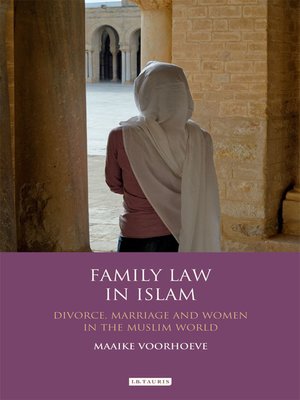
Sign up to save your library
With an OverDrive account, you can save your favorite libraries for at-a-glance information about availability. Find out more about OverDrive accounts.
Find this title in Libby, the library reading app by OverDrive.



Search for a digital library with this title
Title found at these libraries:
| Loading... |
In both the West and throughout the Muslim world, Islamic family law is a highly - and hotly - debated topic. In the Muslim World, the discussions at the heart of these debates are often primarily concerned with the extent to which classical Islamic family law should be implemented in the national legal system, and the impact this has on society. Family Law in Islam highlights these discussions by looking at both public debates and legal practice. By examining family law in various contexts in the Middle East and North Africa, Maaike Voorhoeve brings together an informative and vital analysis of these societies and gender relations within them. Using contemporary examples, this book unpicks the complex and often contradictory attitudes towards Muslim family law, and the ways in which it is put into practice by judges, lawyers and litigants. For example, Family Law in Islam illustrates how women in Mauritania or Egypt use marriage and divorce law to carve out a role for themselves within society. No analysis of family law in the Middle East would be comprehensive without examining the evolution of the Family Protection Act in Iran - and here is examined the more current revisions to this act, highlighting the tensions over women's status and rights in Iranian (and Muslim) society, the role of law in shaping this status from 'above' and the disparate groups who attempt to influence this. Using a range of contemporary examples, from polygamy to informal marriage (zawaj 'urfi), and from divorce with mutual agreement (khul') to judicial divorce (tatliq), this wide-ranging and penetrating volume explores the impact of Islamic law on individuals, families and society alike from Morocco to Egypt and from Syria to Iran. It thus contains material of vital importance for researchers of Islamic Law, Politics and Society in the Middle East and North Africa.






